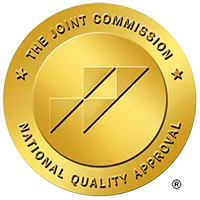- CARF (the Commission on Accreditation of Rehabilitation Facilities) – an independent, nonprofit organization that accredits addiction and dual diagnosis programs. It is the largest accrediting body for addiction treatment programs.
- The Joint Commission (formerly JCAHO) – America’s largest accreditor of health care services and the second largest accreditor of addiction treatment programs.
Why Accreditation Matters
Accreditation by both CARF and the Joint Commission are widely accepted by state licensing agencies toward fulfillment of licensing requirements. Of the 13,339 addiction treatment programs that voluntarily responded to The National Survey of Substance Abuse Treatment Services, 21.8 percent were accredited by CARF, 19.2 percent were accredited by the Joint Commission and 56.9 percent were not accredited by either.
Facilities that meet CARF or Joint Commission standards have demonstrated their commitment to being among the best drug rehab facilities in the world. Accrediting bodies have higher standards than state licensing requirements as well as guidelines for ongoing improvement. Accreditation is a rigorous process that includes a thorough review of the program’s structure, practices, clinical programming and outcomes. Facilities that are granted accreditation meet internationally accepted standards of quality and are committed to individualized treatment and client satisfaction.
Filling in the Gaps
Does accreditation ensure quality care? Often, but not always. CARF requires addiction services to incorporate “current research, evidence-based practice, peer-reviewed scientific and health publications, clinical practice guidelines and/or expert professional consensus.” Facilities must have specific written policies and procedures in place and must develop individualized treatment plans. The Joint Commission has similar requirements, though it does not specify what kind of psychosocial or pharmaceutical services should be provided.
A 2007 study showed several correlations between accreditation and quality care, but the association wasn’t uniform across all accredited programs. In another study, researchers found that programs that voluntarily seek accreditation have the resources and drive to improve their quality of care, and thus were more likely to adopt evidence-based practices than those subjected to mandatory accreditation.
As recently pointed out in a national study by The National Center on Addiction and Substance Abuse (CASA) at Columbia University, accreditation is a valuable measure of quality but it leaves a few gaps:
- Staff Qualifications. For facilities accredited by CARF, physician oversight is required for certain services and staff must be licensed or certified by a credentialing body. Still, state laws govern which professionals are qualified to provide addiction treatment. Programs accredited by the Joint Commission must hire staff that are licensed, certified or registered “in accordance with the law.” Thus, in addition to finding an accredited facility, talk to the programs you’re considering about the education and training requirements of staff and the level of involvement of a physician/medical director.
- Quality Assurance. Both CARF and the Joint Commission have quality assurance requirements. CARF requires a review of service quality and utilization and an analysis of patient outcomes to ensure effectiveness, while the Joint Commission asks programs to collect data and monitor opportunities for improving performance. Still, many programs are not specifically required to collect and publish outcome data to help guide people in their choice of program. When searching for a drug rehab program, ask how they evaluate effectiveness and if they monitor patient outcomes, but beware of exaggerated success rates.
- Lack of Uniformity. The major accrediting bodies require facilities to use evidence-based practices and monitor patient outcomes to some degree, but there are no uniform requirements imposed on drug rehab facilities across the board. This leaves room for variability even among programs that are accredited.
So does accreditation alone mean you’re receiving the best care available? You have to do your homework. Accreditation can’t guarantee a successful outcome, but it is one of the best indicators of quality that we have. By choosing an accredited program and asking detailed questions about the program staff, services and reputation, you can be confident that your rehab of choice is the best path to recovery.
Dr. David Sack is board certified in psychiatry, addiction psychiatry and addiction medicine, and writes an addiction blog. As CEO of Elements Behavioral Health, he oversees addiction and mental health treatment programs at Brightwater Landing treatment center in Pennsylvania and The Sundance Center in Arizona.
Copyright 2016 PsychCentral.com. All rights reserved. Reprinted here with permission.
Original Article from PsychCentral.com
Red Rock Recovery Center is a Colorado state licensed substance abuse extended care treatment program designed to help you or your loved one recover from the struggles associated with alcoholism and drug addiction. Located in Denver, Colorado we offer a safe haven for those afflicted by the ravages of untreated addiction. Our program is based on a compassionate 12-step model that applies behavioral as well as life skill therapies, which will enable our clients to heal and recover.
#recovery #drugrehab #redrockrecovery




